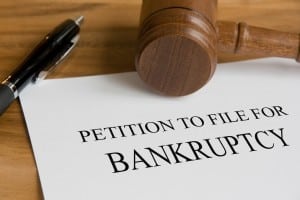
Chapter 7 Overview
The Chapter 7 Petition and Filing Requirements
The Chapter 7 bankruptcy case starts when the debtor files a petition with the bankruptcy court. Additionally, the debtor must also file the documents below with the court:
Schedules of assets and liabilities;
A schedule of current income and expenditures;
A statement of financial affairs; and
A schedule of executory contracts and unexpired leases.
Debtors must also provide the case trustee with a copy of tax return or transcripts for the most recent tax year as well as tax returns filed during the case. This includes tax returns for prior years that had not been filed when the case began.
Individual debtors with primarily consumer debts also must file:
Evidence of all income in the 60 days prior filing the case;
A statement of monthly income ;
A credit counseling certificate and a copy of any debt repayment plan developed through credit counseling; and
A record of any interest in federal or state qualified education or tuition accounts.
A husband and wife may file a joint petition or individual petitions. Even if filing jointly, a husband and wife are subject to all the document filing requirements of individual debtors.
Fees and Payment Options
As of July 10, 2020, the courts filing fee is $335. The fees are paid to the clerk of the court at the time of filing. However, in limited situations, the court may allow the debtor to make installment payments. The court may even waive the filing fee altogether. Required Information In order to complete the bankruptcy petition and forms, the debtor must have the following information:
A list of all creditors and the amount and nature of their claims;
The source, amount, and frequency of the debtor’s income;
A list of all of the debtor’s property; and
A detailed list of the debtor’s monthly living expenses,
Married individuals must gather this information for their spouse regardless of whether they are filing a joint petition, separate individual petitions, or even if only one spouse is filing. In a situation where only one spouse files, the income and expenses of the non-filing spouse is required so that the court, the trustee and creditors can evaluate the household’s financial position.
The “Automatic Stay“
Filing a petition under chapter 7 “automatically stays” (stops) most collection actions against the debtor or the debtor’s property. But filing the petition does not stay certain types of actions listed under the Bankruptcy Code, and the stay may be effective only for a short time in some situations. The stay arises by operation of law and requires no judicial action. As long as the stay is in effect, creditors generally may not initiate or continue lawsuits, wage garnishments, or even telephone calls demanding payments. The bankruptcy clerk gives notice of the bankruptcy case to all creditors whose names and addresses are provided by the debtor.
Meeting of Creditors
Usually between 30 and 45 days after the petition is filed, the case trustee will hold a meeting of creditors. During this meeting, the trustee puts the debtor under oath, and both the trustee and creditors may ask questions. The debtor must attend the meeting and answer questions regarding the debtor’s financial affairs and property. If a husband and wife have filed a joint petition, they both must attend the creditors’ meeting and answer questions. Within 10 days of the creditors’ meeting, the U.S. trustee will report to the court whether the case should be presumed to be an abuse under the “means test” (which determines eligibility for filing bankruptcy under chapter 7)
It is important for the debtor to cooperate with the trustee and to provide any financial records or documents that the trustee requests. The Bankruptcy Code requires the trustee to ask the debtor questions at the meeting of creditors to ensure that the debtor is aware of the potential consequences of seeking a discharge in bankruptcy such as the effect on credit history, the ability to file a petition under a different chapter, the effect of receiving a discharge, and the effect of reaffirming a debt. Some trustees provide written information on these topics at or before the meeting to ensure that the debtor is aware of this information. In order to preserve their independent judgment, bankruptcy judges cannot attend the meeting of creditors.
Conversion from Chapter 7
In order to accord the debtor complete relief, the Bankruptcy Code allows the debtor to convert a chapter 7 case to case under chapter 11, 12 or 13 as long as the debtor is eligible to be a debtor under the new chapter. However, a condition of the debtor’s voluntary conversion is that the case has not previously been converted to chapter 7 from another chapter. Thus, the debtor will not be permitted to convert the case repeatedly from one chapter to another.